Solving the World’s Biggest Problems
November 02, 2022
By Robert Stephens
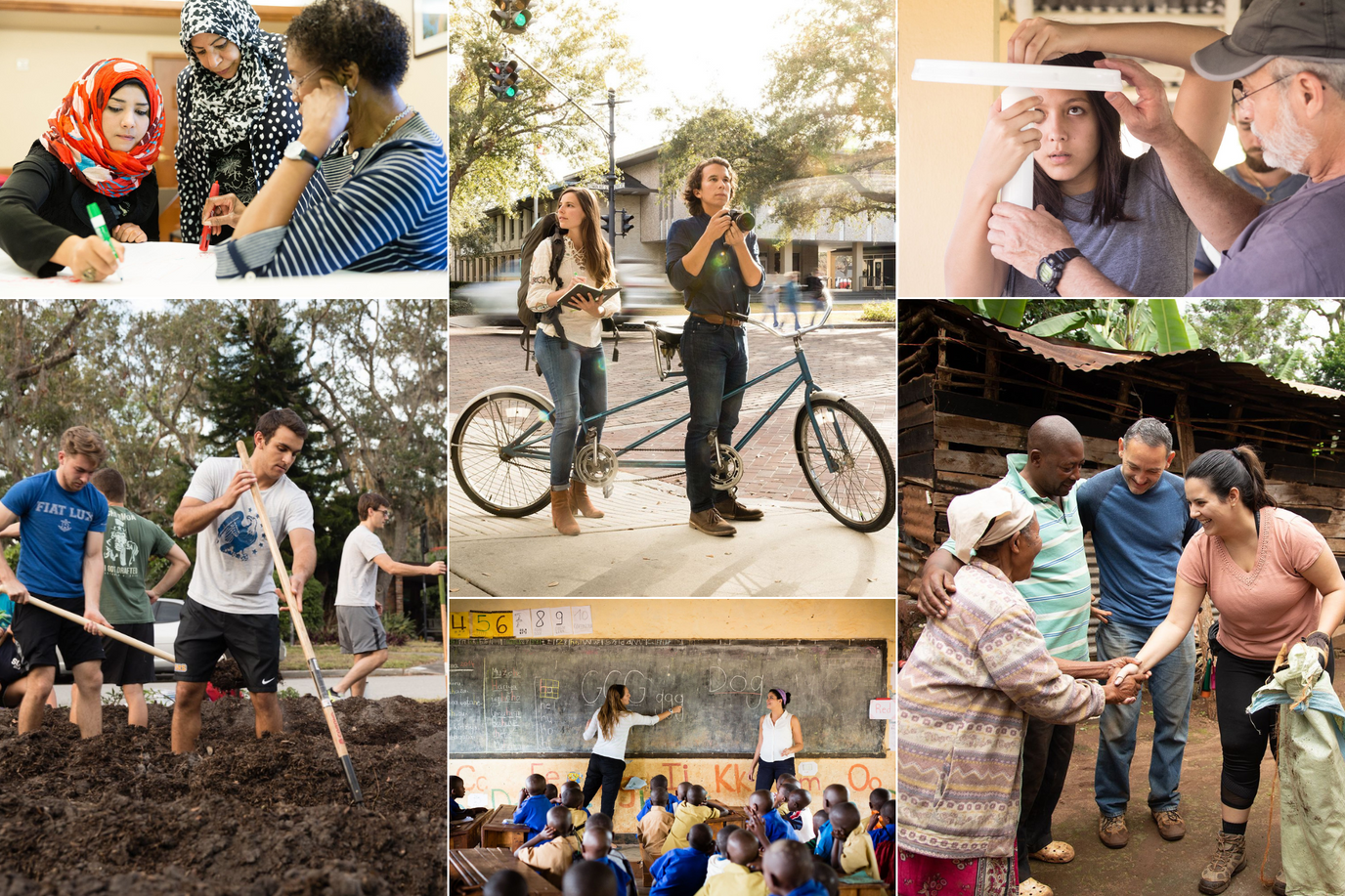
For Rollins students, alumni, and faculty, the most pressing issues of our time are not insurmountable. They’re opportunities to bring meaning to the term “global citizenship.”
The stories of Emily Curran ’22, Bradley Russell ’22, Isabel Adamus ’22, and Julia Dartmann ’20 start at the same spot. Standing at the center of Mills Lawn on a campus visit as wide-eyed high-schoolers just like you. Looking out at glistening Lake Virginia. Feeling the cool shade of sprawling oak trees, wondering, “Where can I follow my dreams” and “what can I do to make a difference?”
Every new student knows the questions. At Rollins, in the same welcoming environment where Fred Rogers ’51 ’74H started discovering his direction, they too discover answers during walks with professors to Bush Cafe and while planning weekend service projects with Habitat for Humanity. It’s one thing to want to make the world better. At Rollins, students are given the opportunities, the guidance, and the expertise to actually do it.
From coursework to fieldwork, research to institutional partnerships, the elements of a Rollins education are preparing our students to tackle the world’s toughest challenges, which have been laid out globally by the United Nations through 17 Sustainable Development Goals (SDG). Here’s how we’re stacking up so far.
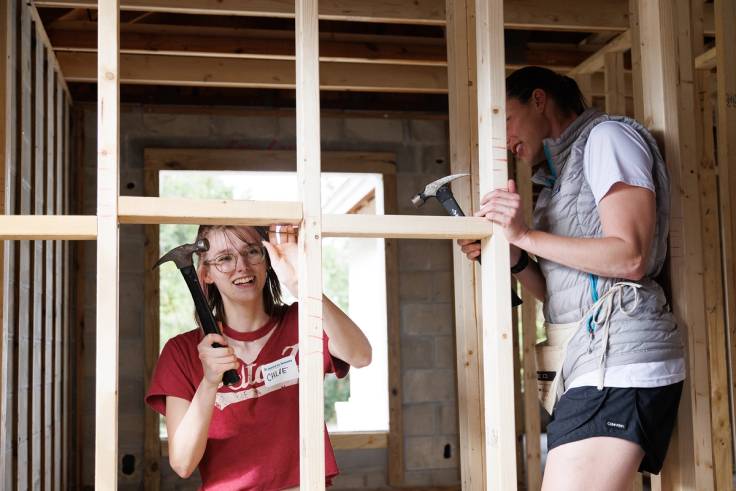
1. No Poverty
During her first year at Rollins, communication studies major Madhavi Mooljee ’21 glimpsed the power of service. The Bonner Leaders Program matched Mooljee with IDignity, which secures identification so impoverished people can find jobs and attend school. “Listening to their stories made them feel important,” says Mooljee, “and changed my life.”
2. Zero Hunger
While working alongside sociology professor Amy Armenia in the Student-Faculty Collaborative Scholarship Program, Emily Curran ’22 discovered an interest in improving food assistance programs. Their findings about food deserts were published, and Curran went on to serve as director of the campus food pantry.
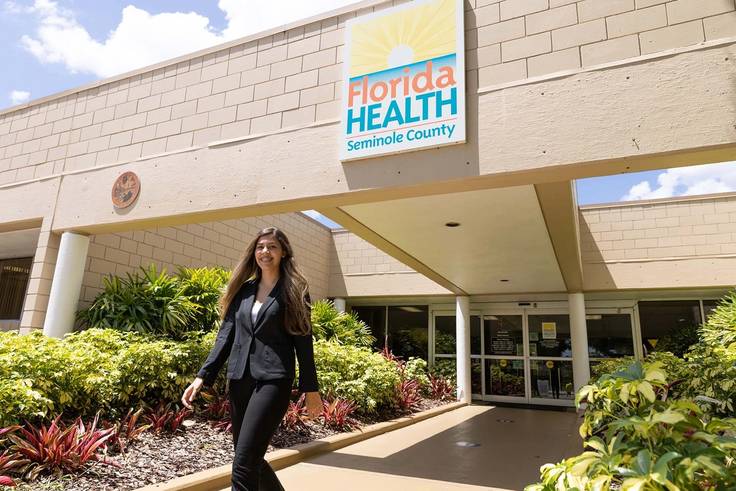
3. Good Health & Well-Being
For her U.N. Millennium Fellowship project, biochemistry/molecular biology and anthropology double major Isabel Adamus ’22, who’s minoring in global health, drew similarities from impacts of the 1918 Spanish Flu pandemic on socioeconomic classes to the COVID pandemic. Adamus says the project is inspiring the way she applies her degrees to improve health for everyone.
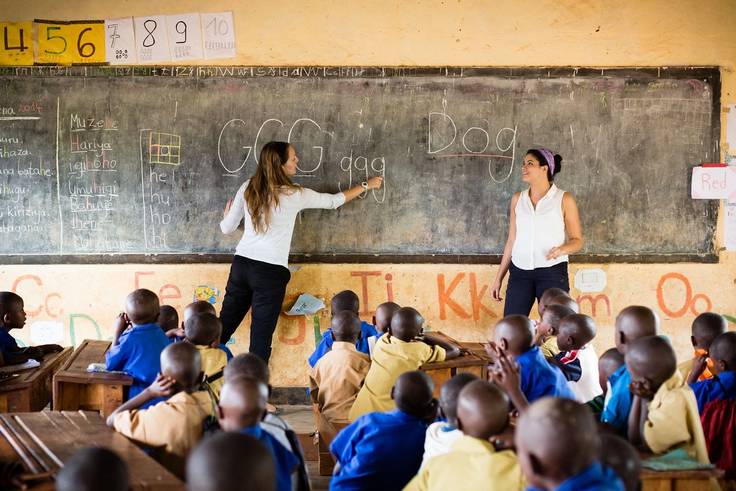
4. Quality Education
Since 2012, Rollins students have worked alongside teachers and families in Rwanda to help ensure that more children are prepared to pursue higher education. Scott Hewit, associate professor of education, says the experience moves Rollins students to “appreciate the comforts they enjoy and dedicate their lives to helping others.”
5. Gender Equality
The Sexuality, Women’s, and Gender studies (SWAG) minor at Rollins ties subjects like English, art, philosophy, and history to gender experiences. The Lucy Cross Center for Women, Gender, & Sexuality provides space for meaningful discussions and, as students become adept at recognizing gender-based oppression, to take action.
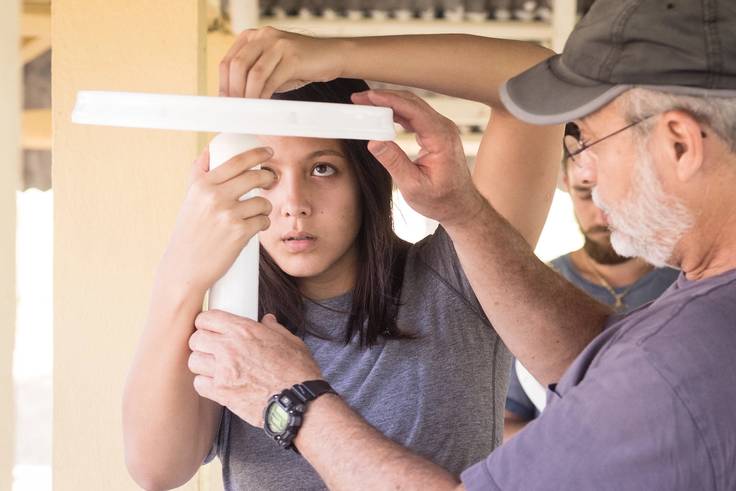
6. Clean Water & Sanitation
For more than 25 years, chemistry professor Pedro Bernal has led field studies to villages across the Dominican Republic where students install water filtration systems. At least 20,000 people no longer have to drink contaminated water from rivers. “What we did during my trip can’t be experienced in a classroom,” says Caroline Rosendahl ’19 ’21MBA.
7. Affordable & Clean Energy
Rollins is one of approximately 40 colleges to participate in the National Academy of Engineering’s prestigious Grand Challenges Scholars Program. Through his research, physics major Bradley Russell ’22 found nuclear power to be “the best solution” to cleaner, cheaper energy around the world. “I wouldn’t have been able to dive this deeply into the issue at a school other than Rollins.”
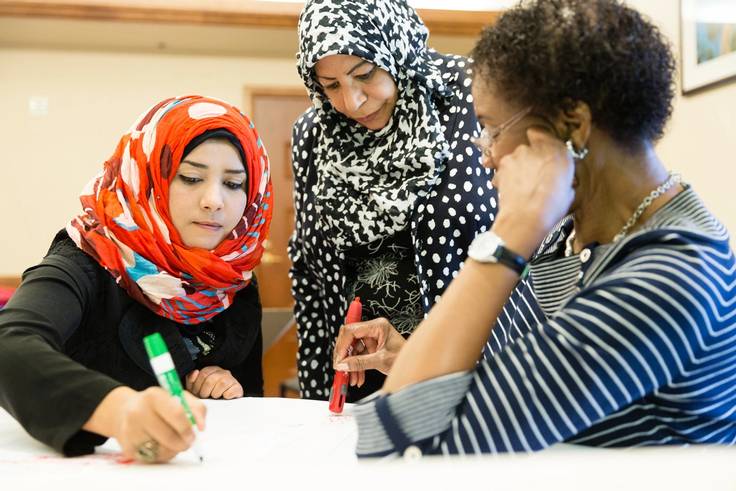
8. Decent Work & Economic Growth
Women in underdeveloped areas of the world come to Rollins via the Global Links Initiative and return home to share newfound business skills with fledgling women entrepreneurs. The cycle helps women run small businesses, provide jobs, and set paths for prosperity in their communities.
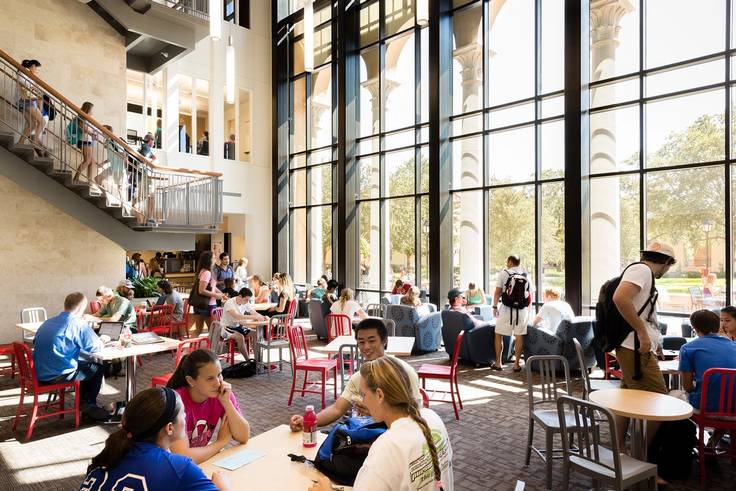
9. Industry, Innovation, & Infrastructure
The Bush Science Center exemplifies ever-evolving innovation on campus. Not only is it home to high-tech labs that produce original student-faculty research, but the building itself is LEED-certified with technology that saves 70 percent on energy use. And up on the roof is a state-of-the-art greenhouse—home to 800 global plant species and research labs for students to study the next scientific breakthroughs.
10. Reduced Inequalities
In social entrepreneurship professor Tonia Warnecke’s course Global Development Challenges and Opportunities, students research topics related to income inequality through the lenses of geography, gender, and race. Class discussions are open and frank regarding economic disparity in other countries but also within the Rollins student body. “The first step to making real change,” says Warnecke, “is awareness.”
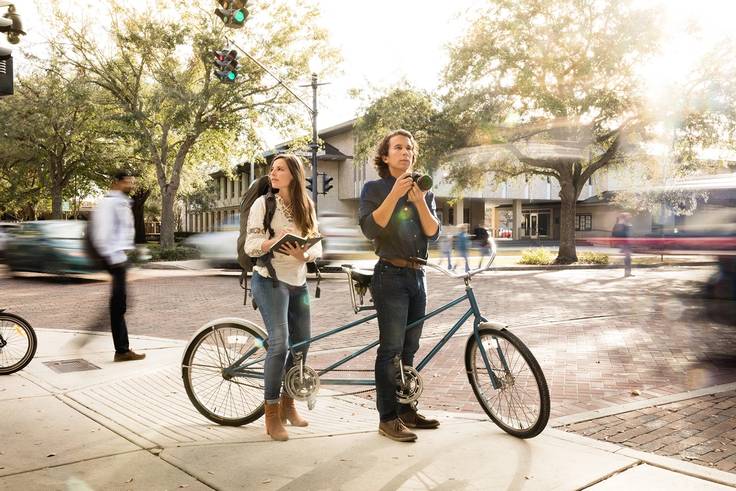
11. Sustainable Cities & Communities
Environmental studies professor Bruce Stephenson is an expert on sustainable cities from his previous career as a city planner. Now he collaborates with students on local projects and leads field studies to Portland, Oregon, so students learn how to merge green spaces with modern city architecture.
12. Responsible Consumption & Production
International business majors Julia Dartmann ’20, Luisa Rivas ’21, and Laura Tafur Vidal ’20 participated in Rollins’ Impact Incubator to help them launch their business, GreenWave Solution, which helps sustainable-product companies with marketing and growth. “We’re taking the concept of sustainability from trend to mainstream.”
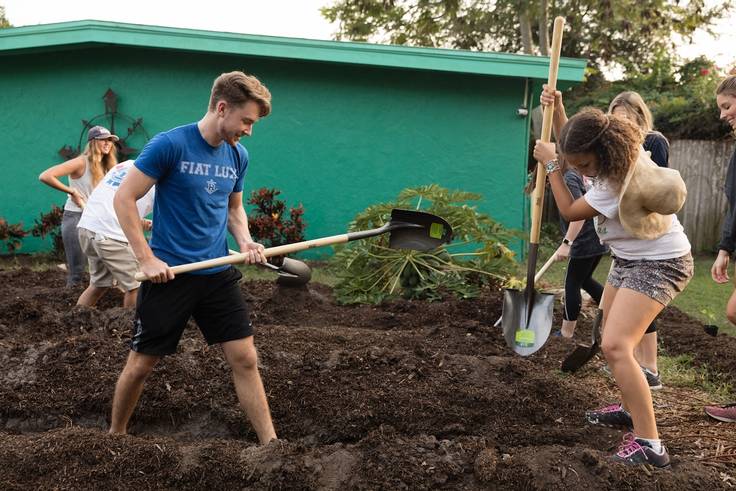
13. Climate Action
Students combine best business practices with environmental know-how in classes like Strategies for Changemakers. After transforming residential lawns into micro-farms, Mark Angelo ’18 said the course is “tailored for making real change in the current business world” while also “nurturing unconventional solutions to complex world issues.”
14. Life Below Water
Rollins is a convenient hub to teeming dive sites where students can visually study healthy marine environments: reefs in the Florida Keys and elkhorn coral in the Bahamas. Students learn how the health of our global population is directly connected to the health of marine environments.
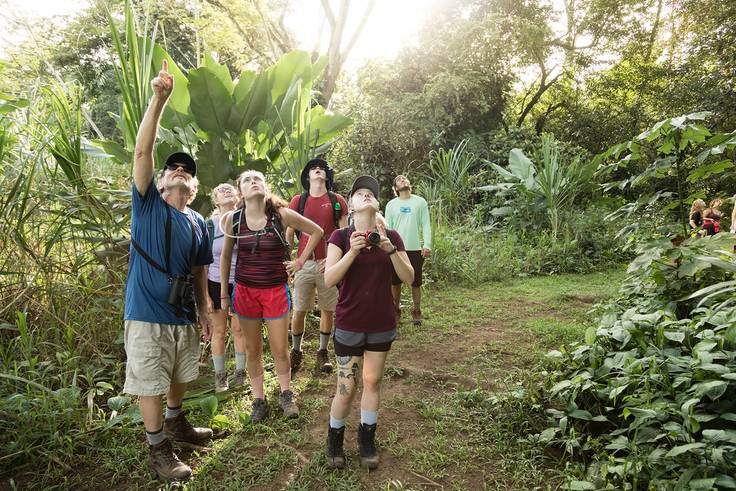
15. Life on Land
Environmental studies professor Barry Allen launched the environmental studies program at Rollins in 1982, long before other colleges adopted it. And since 1995, he’s welcomed students to study in Costa Rica before they’ve attended their first class. Tyler Kartzinel ’07, now a professor at Brown, says, “I’ve modeled my own field studies from the courses I took with Barry at Rollins.”
16. Peace, Justice, & Strong Institutions
Manpower and skills are not so important when political science professor Dan Chong takes students to work in remote regions of Africa. “I’m looking for students who are curious,” he says, “because working in villages and drinking banana beer with people … that’s how you gain a real foundation for human rights.” These field studies open students’ eyes to the ins and outs of community development—whether it’s hauling dirt alongside local villagers or negotiating the nuances of microfinance.
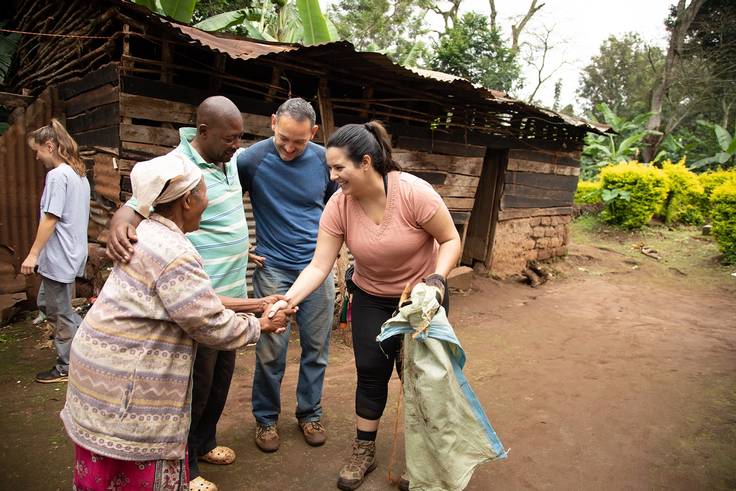
17. Develop Partnerships
“Solving the world’s biggest problems requires listening and personal connection,” says Rollins President Grant Cornwell, who teaches a course on global sustainability with Provost Susan Singer that’s built around the SDGs. Singer believes these goals provide a true north to guide our focus on people and our planet. In this vein, Rollins has developed hundreds of partnerships locally, nationally, and globally and is continually building more. “We feel the SDGs are designed to lift everyone up,” says Singer, “and that’s how we approach education and life at Rollins.”
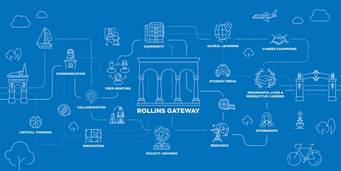
Find Your Gateway
Start charting your course to personal and professional success at Rollins.
Read More
March 20, 2024
Rollins’ External Relations Team Named Finalist for Prestigious PR Award
Rollins’ Office of Communications & External Relations earns a spot as an Anvil Award finalist for media coverage of valedictorian Elizabeth Bonker ’22.
March 19, 2024
Strom Publishes Book on History of Hunger Relief
History professor Claire Strom has co-written a new book on the national hunger relief movement alongside Dave Krepcho, president and CEO of Second Harvest Food Bank of Central Florida.
March 13, 2024
Small Classes, Big Impact
At Rollins, our commitment to small, discussion-based classes drives deeper learning and deeper connection.
